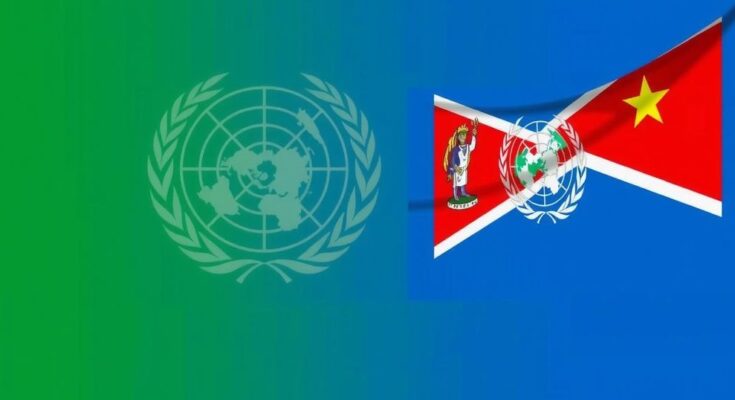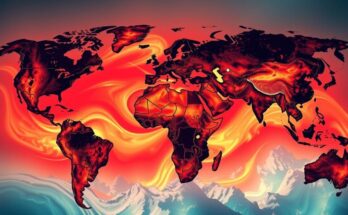Papua New Guinea has declared a boycott of the forthcoming UN climate summit, criticizing it as a ineffective platform that produces empty promises from major polluters. The Foreign Minister, Justin Tkatchenko, highlighted the frustrations surrounding unfulfilled commitments and the lack of action over the years. He argued for a shift towards forming bilateral agreements with other nations, like Singapore, to tackle climate challenges more effectively than through the COP talks.
On Thursday, Papua New Guinea boldly announced its decision to boycott next month’s United Nations climate summit, labeling the negotiations over global warming as a \”waste of time\” filled with empty promises from major polluters. Such a complete dismissal of the UN’s primary climate discussions is uncommon among nations, as typically there are criticisms but rarely outright boycotts. Foreign Minister Justin Tkatchenko articulated, \”There is no point in attending if we are falling asleep due to jet lag while accomplishing nothing.\” He emphasized that promises from significant polluting nations regarding climate aid often do not materialize as actual support, instead being funneled towards consultants. Papua New Guinea, home to a significant portion of the world’s rainforest and recognized as a vital ecological resource, faces acute vulnerabilities to climate change, exacerbated by its impoverished status and natural disaster susceptibility. \”COP is a total waste of time,\” stated Tkatchenko, expressing exhaustion over unfulfilled commitments made over the last three years. The nation is frustrated that despite being a crucial provider of environmental services, it is not receiving equitable recognition or aid in return. Past COP summits, most notably the 2015 Paris Agreement, have established ambitious targets for emission reductions, but subsequent meetings have been criticized for inaction and perceived appeasement of major polluters. Critiques have arisen surrounding adequacy and reforms in climate funding, particularly for developing nations, alongside growing sentiments of frustration from civil society groups and smaller nations regarding the efficacy of these gatherings. In this context, Papua New Guinea stands out for its strong stance against the COP, wherein Foreign Minister Tkatchenko remarked, \”Why are we spending all this money going to the other side of the world for these talkfests?\” By opting out of COP discussions, Papua New Guinea hopes to forge more meaningful bilateral relationships with nations like Singapore, to directly address their environmental challenges and collaborate on climate solutions. This decision resonates with other Pacific islands which also feel neglected in international climate dialogues, emphasizing that the nation is advocating not just for itself, but for smaller states in similar predicaments. A recent meeting ahead of COP29 underscored the lack of progress in securing finance deals for vulnerable nations, further fueling the rationale behind Papua New Guinea’s unprecedented call to boycott the summit altogether. Instead of participating in what they deem unproductive talks, Papua New Guinea aims to negotiate climate deals independently, highlighting their intent to create impactful partnerships with nations that share aligned interests and responsibilities towards addressing climate impacts.
Papua New Guinea faces significant threats from climate change, as it is a low-lying nation heavily reliant on its vast rainforest ecosystems. Recognized as one of the world’s essential rainforest countries, these forests play a crucial role in carbon absorption, often referred to as \”the lungs of the earth.\” However, despite its vital contribution to the global climate, the nation remains impoverished and increasingly vulnerable to natural disasters, raising concerns regarding equitable treatment and support from developed nations. The COP climate summits have historically negotiated international agreements, but their effectiveness has been questioned, with accusations that major polluters often evade substantial commitments. This backdrop sets the stage for Papua New Guinea’s decision to boycott the upcoming COP conference.
Papua New Guinea’s decision to boycott the upcoming UN climate summit marks a significant stance against perceived inaction and unfulfilled commitments from larger, polluting nations. By opting out of what they describe as ineffective discussions, the nation aims to advocate for itself and other vulnerable Pacific island states, seeking more fruitful bilateral arrangements to address climate change. This action underscores a growing frustration within the international community regarding the efficacy of COP meetings and reflects a desire for substantive progress in combatting the climate crisis.
Original Source: www.voanews.com




